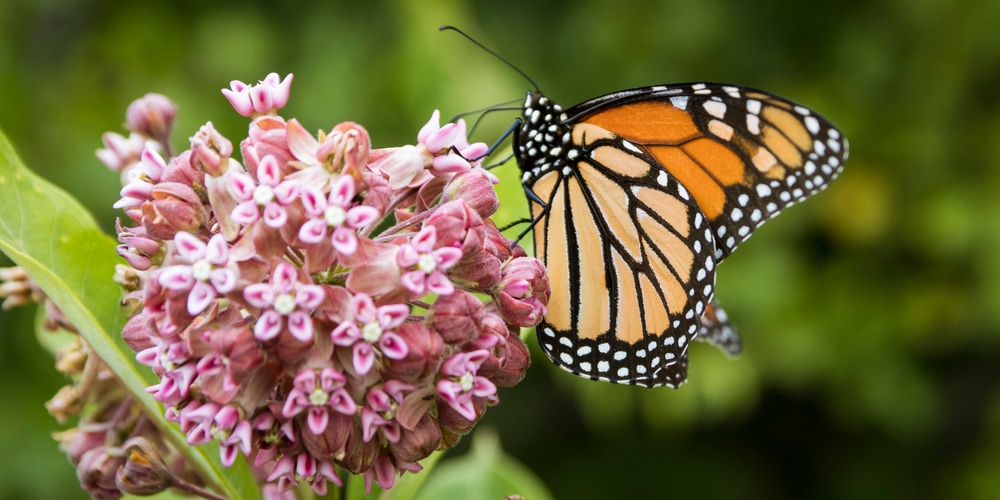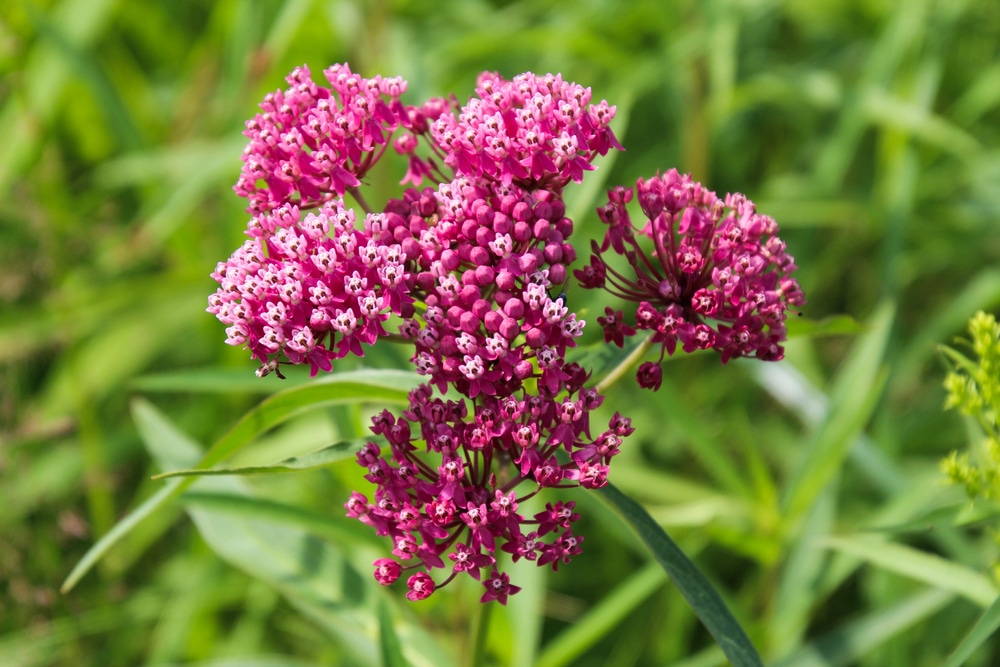Recently, it has become increasingly popular to shift away from using pesticides to control weed growth. There are many purported alternative solutions on the market. What’s actually going to work, though, and what’s just a waste of time?
You may be interested in using vinegar in your garden. You may be looking to shift away from pesticides, wholly go organic, or just want a cheaper way to kill weeds. But can something as ordinary as vinegar kill something as invasive and hardy as milkweed? Let’s find out.
What is Milkweed?
Milkweed, or Asclepias, is an herbaceous perennial flowering plant. Its common name comes from the fact that the leaves produce a milky substance when they’re damaged. Most species of milkweed are toxic to humans, but butterflies love to feed on them.
So, if you aren’t intentionally growing a butterfly garden, you’ll probably think of milkweed as a noxious weed. It’s hard to get rid of, spreads rapidly, and will compete for water and nutrients.
Will Vinegar Kill Milkweed?
Undiluted vinegar is a good option for controlling milkweed if you don’t mind going a few rounds. Vinegar can kill back any plant. That means it kills the leaves but not the roots. The acetic acid in vinegar sucks the water out of the plant, usually drying it out within 24 hours.
It’s more effective on younger plants that won’t have as many nutrients stored to regrow the leaves. When the milkweed is more mature is when you’ll have to pour vinegar on it a few times.
The nice thing about vinegar is that a little rain will dilute it down. You can also put the odds more in your favor by applying vinegar on a hot, sunny day when plants are already stressed.
Which Type of Vinegar Is Best?
There are many different kinds of vinegar out there. Any kind will technically work as a weed killer, but undiluted white vinegar is most commonly used. The second most commonly used is apple cider vinegar. White vinegar is cheaper, and most people already have it on hand.
What works even better is to combine the vinegar with dish soap and salt. A possible recipe calls for one gallon of white vinegar, one cup of table salt, and one tablespoon of dishwashing soap.
Will Vinegar Kill Grass Too?
Unfortunately, vinegar will kill grass or, at the very least, seriously burn it. It’s not discerning in its destruction. Well-established grass may be able to grow new blades after being sprayed with vinegar. Younger plants will definitely die because their roots aren’t established.
If you accidentally spray grass or other plants with vinegar, try to spray them with water as quickly as possible. The water will help dilute the vinegar and reduce its potency.
Final Thoughts
Undiluted vinegar will kill milkweed, but it might just take more than one application. You can increase your odds of killing it in one go by applying it to younger plants, applying it on extra sunny days, and by using a mixture that includes salt and dishwashing soap.
Household products have many other uses in the home and garden. For example, vinegar can be used to repel ants.

